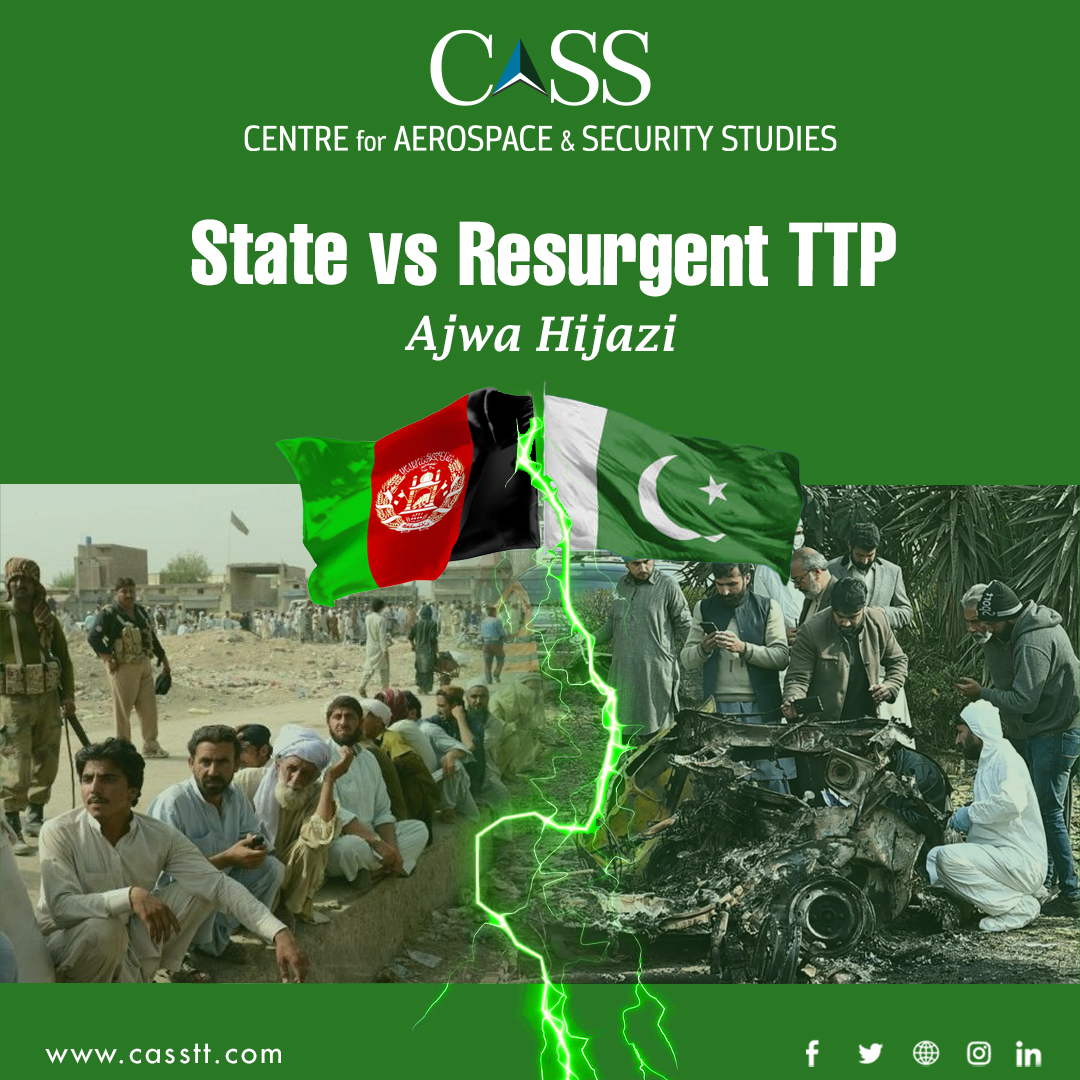2022 saw the process of peace talks between the state of Pakistan and Tehrik-i-Taliban Pakistan (TTP) with the facilitation of the Islamic Emirates of Afghanistan (IEA). Their progression was characterised by occasional derailments. Unfortunately, the talks eventually led to TTP halting their indefinite ceasefire with the government and announcing nationwide attacks. The resurgence of the TTP has pitched the state once again against the terrorist outfit which has caused massive human and material losses to the nation in the last decade.
Owing to TTP’s resumption of attacks against the state of Pakistan, the threat of deteriorating security conditions has been rising with each passing day. The manifestation of TTP’s resurgence has been indicated by several terror-related incidents in recent months, with the Bannu hostage crisis and the recent suicide bombing in Islamabad being particularly severe. While looking at the recent unfolding of TTP’s aggressive posture, there is a prevalent view that the comeback of the Afghan Taliban boosted the morale of the organisation and compelled Pakistan to talk to them. However, as pointed out by the National Counter-Terrorism Authority report recently submitted to the Senate Standing Committee on Interior, the Taliban used this window of talks to buy time and stabilise their position by extending the magnitude of their activities, while ‘gauging the pulse of the locals’.
The advent of this revived war against terrorism has come about during a time when political and economic uncertainty in the country is at its peak. Onset of recent attacks, given the internal dynamics, has directed significant attention toward the potential policy measures that Pakistan can take against the resurgence of militancy. Upon looking at probable options, there are two that have been reiterated: one, all-out war; and the other of negotiating with the TTP. The latter option has been tried and failed due to rigid TTP demands pertaining to the reversal of the Federally Administered Tribal Areas (FATA) merger.
The impact of an amplified militant atmosphere in the country would be far-reaching as it would increase the notion of fear in which Pakistan was embroiled a decade ago. It took several tumultuous years of sacrifices by armed and civilian personnel, economic deterioration, and social turbulence for the country to dismantle the infrastructure of the TTP.
The reversal of peace, due to the uncertainty in the process of policymaking, would be fatal for the country. In this context, there is a need for more robust, cohesive and effective implementation of the prevailing counterterrorism directives. However, the execution of any policy cannot be done without taking into account the Afghan and US factor. Currently, the friction between Islamabad and Kabul is intense since the attack on Pakistan’s embassy, followed by the killing of civilians by Afghan border forces; ‘intense shootout’ at the Kurram border district that left 3 soldiers dead; and more recently, alleged airstrikes against the TTP in eastern Afghanistan. So, Pakistan now faces the two-pronged challenge of TTP getting revived in the midst of increasing contentions with the Afghan Taliban.
Terrorism is considered a shared challenge between Pakistan and the US but its cost for the former has been severe along with the pressure of being forced to ‘do more’. Hence, Pakistan finds itself in a tight spot where it needs to navigate a pathway of convergence between its national interest and the US interest in Afghanistan. For now, at least, the US has pledged its support for Pakistan’s effort for border security with Afghanistan.
There is a necessity for a concerted effort at the national front to disrupt TTP’s regrouping and eliminate its growing impact in the tribal belt. The priority of the state apparatus should be to ensure that the country does not relapse back into the menace of terrorism. All kinetic and non-kinetic measures, which are essential in this regard, must be pursued. Furthermore, the impact of current political polarisation should not be used as sound bytes in the response mechanism of the state since some issues are above the realm of petty politics and incidental leverages.
Ajwa Hijazi is a Research Assistant at the Centre for Aerospace & Security Studies (CASS), Islamabad, Pakistan. She can be reached at [email protected].





